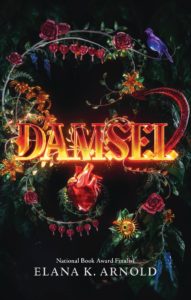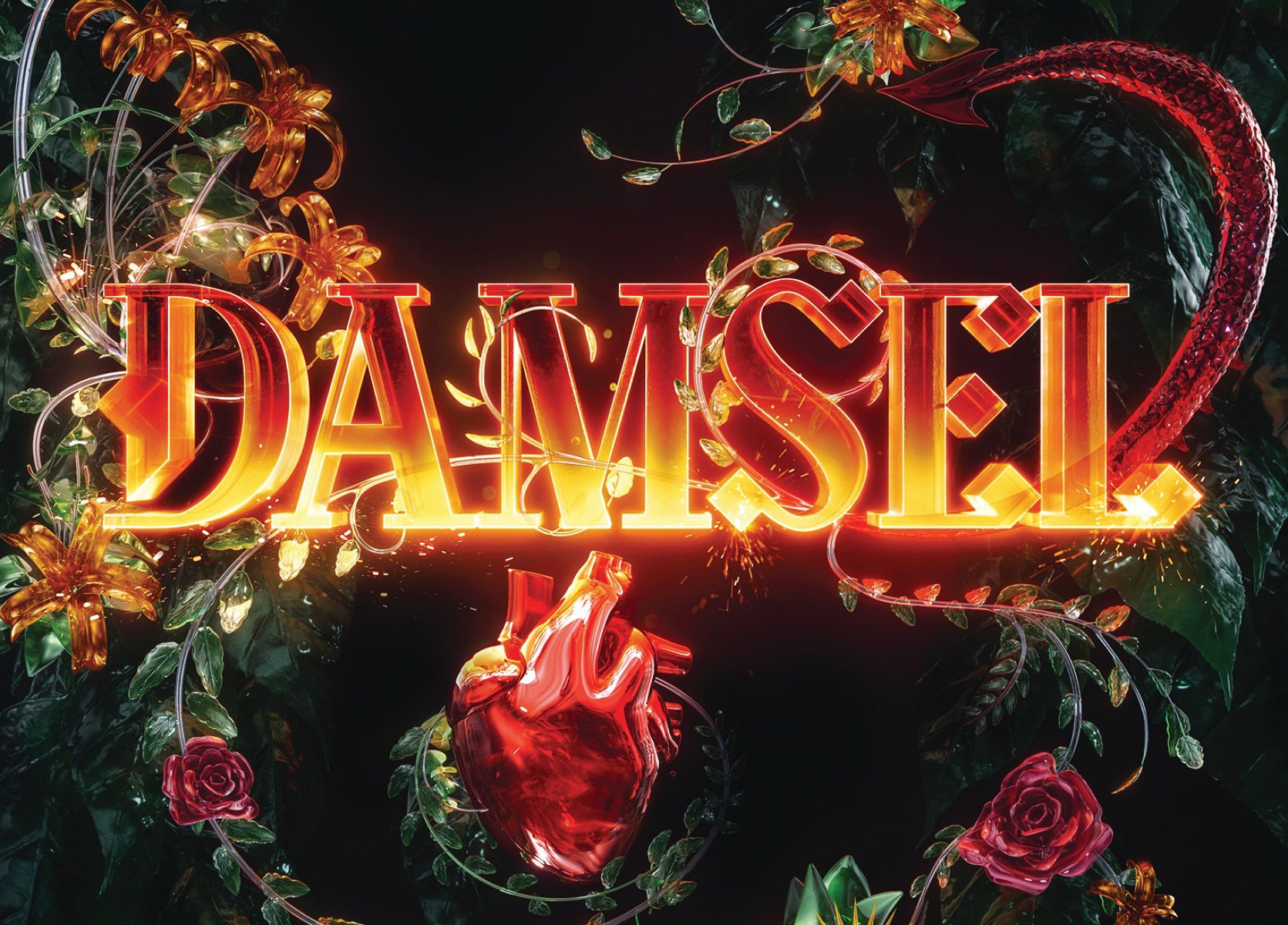A Student Interview
Recently, a college student who is interested in being a writer emailed me and asked if I would answer some interview questions.
Also, I’ll share here again the beautiful cover of DAMSEL, which will be published October 2nd.

Available now for preorder!
I thought other emerging writers might find my responses to be of use, so I’m sharing them here.
Q: Where do you find inspiration for your books/writing?
A: I find inspiration all around me—in my own history; in current events, politics, and culture; in other art (books, TV, film, music); in nature; in animals and children. The job of a creative person is to be curious and pay attention.
Q: What does your writing process look like? Do you set a plot for a book/series first or see where inspiration takes you?
A: My process varies depending on what I’m currently working on and where I am in the process. I do a lot of wandering around, imagining, much the way a child loses herself in daydreams, except with the daydreams populated by potential or current characters. I rarely plot; I begin with an idea—either for a first line, or a character, or a setting. Sometimes the voice comes to me; sometimes it takes patience. Some days I work on writing new words for five hours or longer; other days I don’t write anything down at all. I wish I had a prescriptive approach I could share, but I don’t. Every time I begin a new project, I feel like I’m starting for the very first time. And that’s because it is true; each time I begin a new story, it’s the first time I’ve told that story, and I learn how to tell it by telling it.
Q: What does your editing process look like? How do your rough drafts compare to your final drafts?
A: Most of my stories grow in revision; the novel I’m currently working on was about 52,000 words when I finished the first draft, and now it’s 70,000 words, and, I think, almost ready to share with my editor. Based on his notes and our conversations, it could grow perhaps another 10,000 words. A lot of revision, for me, is about discovering what essential core beliefs I have that my story is attempting to put into narrative. I never set out with a “theme” in mind; I just know I have a story to tell. Much later in the process, I discover a belief I have through the exploration of the book. This is the magic of writing—I learn something new about myself through this hard work.
Q: How do you market your work? Do you need an agent?
A: I am traditionally published, which means that an editor at a publishing house acquires my book and helps me make it into the best version of itself possible. The editor and publishing house are in charge of cover design, interior design, sales, publicity, and marketing, and a host of other things that I am still a little fuzzy about. Because I have chosen to go this route, I wanted to find an agent to help me connect with the right editors for my projects, and someone who can negotiate contracts. Not all writers want an agent, and finding an agent should not be something writers are trying to do when they are first creating the work. Art first, then craft, then business. For me, always in that order.
Q: When do you find yourself writing for professional reasons (blogs, emails, promotions)?
A: I teach in a wonderful low-residency MFA program. In that capacity, I do a lot of writing in the form of letters to my students about their work and comments throughout their work. I also answer interview questions and visit blogs as a guest, mostly when I have a new book to share. I write emails most days—to my editors, my agents, my writing friends. I interact with teachers and librarians who may want to bring me to visit their schools and libraries.
Q: What is the appropriate process for contacting editors and/or publishers?
A: The best way to approach an editor or publisher is through an agent who has agreed to represent your work—and remember, a real agent will never charge you any fees. Agents make a percentage (usually 15%) of the book’s advance and residuals. The best way to approach an agent is with a finished manuscript—a solid, clean story with a beginning, a middle, and an end, that fits the parameters of the category in which it fits (that is, one should know the basic expectations of, say, a picture book before submitting one). Make the book the best you can, and then enlist the help of a couple of readers you respect to get their input, and only submit your very best work. Research agents to find people who seem interested in representing the sort of work you are interested in writing. Follow the agents’ submission guidelines posted on their websites. Be professional. Be kind.
Q: Do you have any tips for young writers?
A: Listen to other people’s advice, but don’t forget to listen to your own voice, too. Be wary of changing a story so much to please others that you don’t recognize yourself in it anymore. If people point out problems with your work, thank them—don’t argue. Then go somewhere quiet and allow the criticism to sink in. That person has given you an opportunity. They may not be right about how to fix the problem, but they very well could be correct that there is a problem that needs addressing.
Be grateful; give more than you take—but don’t let people walk all over you, either. Often, people think that writers (especially women writers) should be grateful for the chance to write “for exposure.” Only do for free or for little pay that which you can do without resentment. It is okay to say no, in this and everything.
Q: Anything else I should know in regards to going into a writing based career?
A: Most writers supplement their income in variety of ways. I have seventeen books published and forthcoming—from Random House, Houghton Mifflin Harcourt, Lerner Press, Simon & Schuster, Macmillan, and Harper Collins. In addition to writing, I teach, in Hamline’s MFA program, I travel to schools and libraries as a visiting speaker; I occasionally tutor high school students. There is no guarantee, even if your last book sold well, that your next book will sell at all. So, it’s imperative that writers are nimble.
I love writing. I love being a published author; it was a goal of mine since I was a young child. But the thing about achieving goals is that the heavens do not part and the gods do not bless your head when that goal is met. In order to lead a happy, fulfilling life, one must not rely on external successes or validations, because if you do, each success will leave you hungrier than the last. Find meaning in your work, but also in other areas of your life. And stay curious, always.

Who was the artist fir the book cover for Damsel?
Hello! The covers of both DAMSEL and RED HOOD were designed by a CGI Artists collective called Vault 49. You can see more of their work here: https://vault49.com.